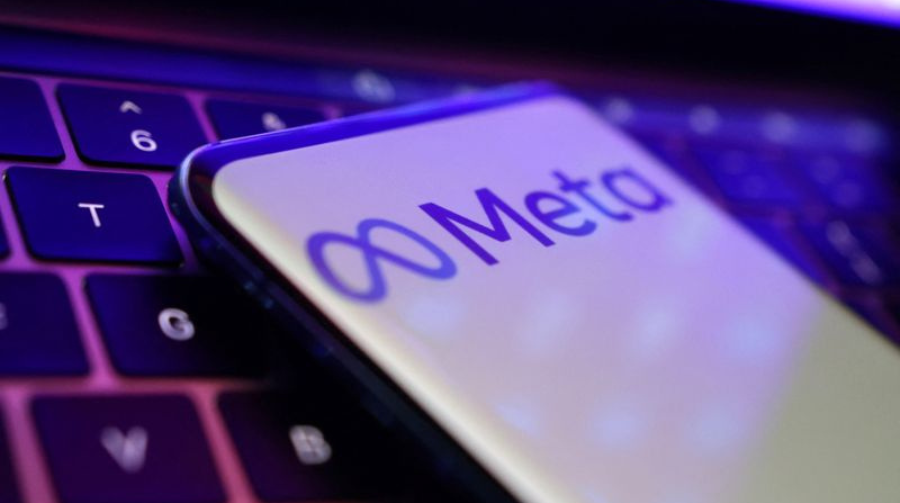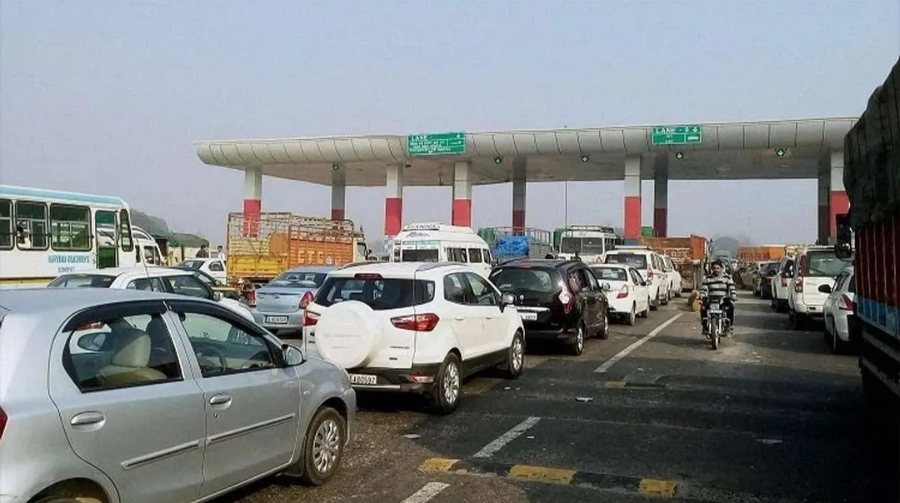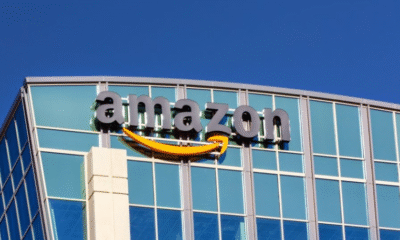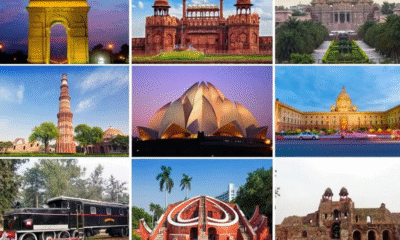Business
Meta Appoints Arun Srinivas as New India Head Amid Regulatory Crossroads

Introduction
In a strategic leadership shift, Meta has appointed Arun Srinivas as its new Managing Director and Head of India, effective July 1, 2025. The announcement comes at a pivotal moment for the tech giant as it navigates India’s tightening regulatory framework while aiming to sustain momentum in one of its largest markets.

Who is Arun Srinivas?
- Current role: Director of Ad Business for Meta India
- Background: Former stints at Unilever, Reebok, Ola, and Sequoia Capital
- Expertise: Advertising, brand strategy, and performance marketing
- Srinivas will now lead Meta’s operations across Facebook, Instagram, and WhatsApp, overseeing partnerships, public policy, and revenue.

🇮🇳 Why This Move Matters for Meta India
India is Meta’s largest user base
- Over 500 million WhatsApp users
- Nearly 450 million Facebook users
- Instagram continues to grow rapidly among Gen Z
Regulatory pressure is growing
- Ongoing scrutiny over data localization, content moderation, and algorithm transparency
- Srinivas will be Meta’s key interface with India’s government and policy-making bodies
Shift from revenue to reputation
- With ad revenue facing plateauing growth, the focus may now be on long-term policy alignment and brand trust-building

Strategic Implications
- Localized leadership could improve government relations and cultural alignment
- Expect Srinivas to drive Meta’s Creator Economy and SMB ad business, which are growing fast in Tier 2/3 India
- He will likely play a role in Meta’s AI + Metaverse rollout strategy tailored for India

What Meta Said
“Arun brings a unique blend of deep consumer understanding, brand expertise and leadership acumen. We are confident he will take Meta India into its next phase of growth.” — Meta Spokesperson
Business
Who is Raju Mantena, the Billionaire Hosting a Lavish Udaipur Wedding with Junior Trump on the Guest List

New Delhi: A royal wedding in Udaipur, Rajasthan, has captured global attention. The four-day extravaganza celebrates the marriage of Netra Mantena, daughter of Indian-born American billionaire businessman Raju Mantena, to Vanshi Gadiraju. Among the high-profile guests expected is Donald Trump Jr., adding international glamour to the event.
Raju Mantena: The Man Behind the Wealth
Raju Mantena is a prominent figure in the American pharmaceutical industry. He is the CEO and chairman of Ingenus Pharmaceuticals, a leading company specializing in generic drug manufacturing for cancer treatment, mental health disorders, and other critical medications. Mantena is also the founder of P4 Healthcare, established in 2005, further cementing his status as an influential entrepreneur in healthcare.
He studied Computer Science Engineering at JNTU, India, before earning a pharmacy degree in the United States, blending technical expertise with medical knowledge to build a healthcare empire. Mantena’s net worth is estimated to be in thousands of crores of rupees, though the exact figure remains undisclosed.
He resides in Florida with his wife, Padmaja Mantena, and the couple is known for their luxurious lifestyle, including a Rs 400-crore estate in Manalapan, Florida, featuring 16 bedrooms, a private beach, and stables.
A Star-Studded Wedding in Udaipur
Netra Mantena and Vanshi Gadiraju’s wedding, scheduled from November 21 to 24, 2025, is a lavish affair combining traditional Indian ceremonies with international luxury. Reports indicate that over 126 celebrities from 40 countries are expected to attend.
Bollywood Guests Include:
- Hrithik Roshan
- Madhuri Dixit
- Ranveer Singh
- Shahid Kapoor
- Kriti Sanon
- Jacqueline Fernandez
- Nora Fatehi
- Karan Johar
Hollywood Guests Include:
- Jennifer Lopez
- Justin Bieber
- Daya Mantena
- Oliver Trevena
- Donald Trump Jr.
The wedding is anticipated to feature grand decor, luxury yachts, traditional Rajasthani rituals, and a fusion of East-West celebrations, making it one of the most talked-about events in 2025.
A Blend of Tradition and Global Glamour
Raju Mantena’s Udaipur wedding is not just a personal milestone but also a reflection of his global stature. From philanthropy in healthcare to building a multinational business, Mantena has successfully merged his Indian roots with American business acumen. The wedding, set against Udaipur’s iconic palaces and lakes, promises to be a spectacular celebration of family, culture, and international prominence.
Expanded Coverage Possibilities:
- A detailed look at the wedding itinerary: pre-wedding ceremonies, sangeet, and reception events.
- Fashion highlights of the bride, groom, and celebrity guests.
- Economic impact of luxury weddings in India, with Udaipur as a case study.
- Interviews or quotes from event planners, designers, and culinary teams for behind-the-scenes insights.
Business
Gold, Silver Rates Today (August 28): Gold Drops on MCX Amid Trump’s Tariffs, Silver Continues to Shine

Precious metal prices witnessed mixed trends on Thursday as gold prices dipped on the Multi Commodity Exchange (MCX), while silver maintained its upward momentum. The movement came in the backdrop of heightened global trade tensions after US President Donald Trump announced an additional 25% tariff on Indian goods, which rattled investor sentiment and prompted profit booking in the bullion market.
Gold Prices on MCX
The October 3 gold futures contract on the MCX opened weak, sliding by ₹92 to ₹1,01,450 per 10 grams compared to the previous close of ₹1,01,542. Soon after, it slipped further to an intraday low of ₹1,01,334 per 10 grams before staging a mild recovery. At last trade, gold stood at ₹1,01,470 per 10 grams, down by ₹72 or 0.07%. During the session, the yellow metal touched an intraday high of ₹1,01,542 but failed to sustain momentum amid profit-taking.

Analysts attribute the decline to two main factors – first, investor profit booking after a sharp rally in the past week, and second, concerns over Trump’s tariff decision, which has triggered fears of potential pressure on India’s exports and broader economic sentiment.
Silver Prices on MCX
In contrast, silver futures (September 5, 2025 maturity) began the session with a slight gain and quickly built momentum. The contract opened at ₹1,16,099 per kg, just ₹2 higher than the previous close, but soon surged to hit an intraday high of ₹1,16,690 per kg. Last seen, it was trading at ₹1,16,620 per kg, marking a gain of ₹523 or 0.45%.
Experts suggest that while gold is under pressure due to trade-related uncertainties, silver is benefiting from strong industrial demand, particularly in electronics and renewable energy sectors, which has helped prices remain buoyant.

Global Gold Market Trends
In the international market, gold prices showed a muted trend. COMEX gold was almost flat at USD 3,448.7 per troy ounce, while spot gold slipped slightly by 0.18% to USD 3,390.39 per ounce at 11:30 AM IST. Analysts note that global investors are closely monitoring US-China trade relations and the impact of Trump’s tariff measures on emerging markets like India.
Gold Prices in Major Indian Cities
- Delhi – 24-carat: ₹1,02,750 per 10g | 22-carat: ₹94,200 per 10g
- Mumbai – 24-carat: ₹1,02,600 per 10g | 22-carat: ₹94,050 per 10g
- Kolkata – 24-carat: ₹1,02,600 per 10g | 22-carat: ₹94,050 per 10g
- Chennai – 24-carat: ₹1,02,600 per 10g | 22-carat: ₹94,050 per 10g
Silver Prices in Key Cities
- Delhi – ₹1,20,000 per kg
- Mumbai – ₹1,20,000 per kg
- Kolkata – ₹1,20,000 per kg
- Chennai – ₹1,30,000 per kg
Outlook
While gold faces short-term resistance due to profit booking and global trade uncertainties, experts believe the long-term outlook remains positive, with demand expected to pick up during the upcoming festive season in India. Silver, on the other hand, is likely to see stronger momentum given its dual role as a precious and industrial metal.

Traders advise investors to watch for global cues, particularly US trade policies and the strength of the dollar, which will play a crucial role in shaping gold and silver trends in the coming weeks.
Business
FASTag Annual Pass Launching on August 15: Check Fee, Validity, and All Important Details

The National Highways Authority of India (NHAI) is introducing a game-changing toll payment solution for frequent highway travellers — the FASTag Annual Pass — starting August 15, 2025. This initiative is designed to make highway travel more convenient, cost-effective, and completely cashless.
The move comes as part of the government’s broader push towards 100% digital toll collection, aimed at reducing congestion at toll plazas and ensuring a smoother travel experience.

What is the FASTag Annual Pass?
The FASTag Annual Pass is a one-time payment subscription that allows unlimited toll crossings on designated routes for an entire year. Unlike the traditional FASTag, which requires topping up after balance deductions for every trip, the annual pass offers unlimited usage within its validity without worrying about per-trip charges.
It uses the same RFID (Radio Frequency Identification) technology already in place for FASTag, which automatically scans your tag when you pass through a toll plaza.
FASTag Annual Pass Fee and Validity
- Annual Fee: Expected to start from ₹10,000, but may vary based on route and toll category.
- Validity Period: 12 months from activation date.
- Coverage: Initially applicable to selected toll plazas and specific national highway stretches, with plans to expand nationwide.

Benefits of the Annual Pass
1. Unlimited Travel on Selected Routes
Perfect for those who travel the same route regularly — for example, office commuters, transport companies, and long-distance taxi services.
Time-Saving Convenience
No need to stop for cash payments or worry about low FASTag balance — annual pass holders can breeze through dedicated FASTag lanes without interruptions.
Cost-Effective for Frequent Users
While ₹10,000 might seem high at first, frequent travellers often spend more on tolls annually. For them, the pass can mean significant savings over time.
Hassle-Free Management
No recharges, no top-ups, no balance checks — just one payment for the whole year.
Who Should Get the FASTag Annual Pass?
- Daily Commuters – Employees traveling between two cities for work.
- Logistics Operators – Trucks, vans, and delivery vehicles using fixed routes.
- Passenger Transport Services – Inter-city cabs and buses.
- Regular Highway Travellers – Families or individuals visiting relatives in nearby towns frequently.

How to Apply for FASTag Annual Pass
- Visit the NHAI FASTag official portal or authorised partner banks.
- Select the “Annual Pass” option under the services menu.
- Fill in vehicle details including registration number, chassis number, and category.
- Upload KYC documents – Aadhaar, RC book, and ID proof.
- Make the one-time payment online or at an authorised agent.
- Activation will be completed within 24–48 hours.
Things to Keep in Mind
- Non-Transferable: Linked to one vehicle; cannot be used for multiple vehicles.
- Route-Specific: Initially valid only for selected stretches; may expand later.
- No Refunds: Mid-term cancellations will not be refunded.
- Vehicle Category Limits: Separate pricing for commercial and private vehicles.

Comparison: FASTag Annual Pass vs Regular FASTag
| Feature | Annual Pass | Regular FASTag |
|---|---|---|
| Payment Mode | One-time yearly | Recharge as needed |
| Validity | 12 months | Until balance runs out |
| Best For | Frequent fixed-route travellers | Occasional users |
| Recharge Hassle | None | Yes |
| Cost Efficiency | High for daily commuters | Varies |
Government’s Push for Digital Tolling
The annual pass is part of NHAI’s plan to make toll collection entirely cashless. With over 95% adoption rate of FASTag in India, the government is now focusing on reducing congestion further by minimising recharge-related delays.
-

 Celebrity Lifestyle9 months ago
Celebrity Lifestyle9 months agoEx-Cricketer Shikhar Dhawan Buys Ultra-Luxury Apartment Worth ₹69 Crore in Gurugram
-

 Crime & Investigation7 months ago
Crime & Investigation7 months agoDelhi Police SI Neetu Bisht Caught Taking ₹20 Lakh Bribe – Shocking Details Emerge in Corruption Probe
-

 Glamour & Entertainment8 months ago
Glamour & Entertainment8 months agoTelegram Channels Disseminating Pro‑Russian Propaganda in Poland
-

 Business8 months ago
Business8 months agoAmazon sets 30‑day relocation deadline for corporate staff—opt out by resigning in 60 days
-

 Entertainment8 months ago
Entertainment8 months agoAbhijeet & Dr Tarika Reunite in CID 2 — Fans Say ‘Clear the Misunderstanding Now
-

 Bollywood6 months ago
Bollywood6 months agoNo ₹3 Lakh Fine or 2-Year Jail: The Truth Behind the ‘Hakla’ GIF Buzz
-

 Travel & Adventure8 months ago
Travel & Adventure8 months agoBest Places to Hangout in Delhi (2025): Top 10 Picks for Fun & Chill
-

 News8 months ago
News8 months agoWar Intensifies: Iran’s Nuclear Sites, Hospitals Hit in Escalating Israel Clash – 10 Big Developments




